Drunkenness, in any dialect, tends to be something that attracts a good deal of slang.
Canadian slang is no different, as they have countless terms for referring to this particular state.
Today, we’re going to look at some of the most common and some of the most obscure and do our best to explain where they came from and how they came to be.
Let’s get started.
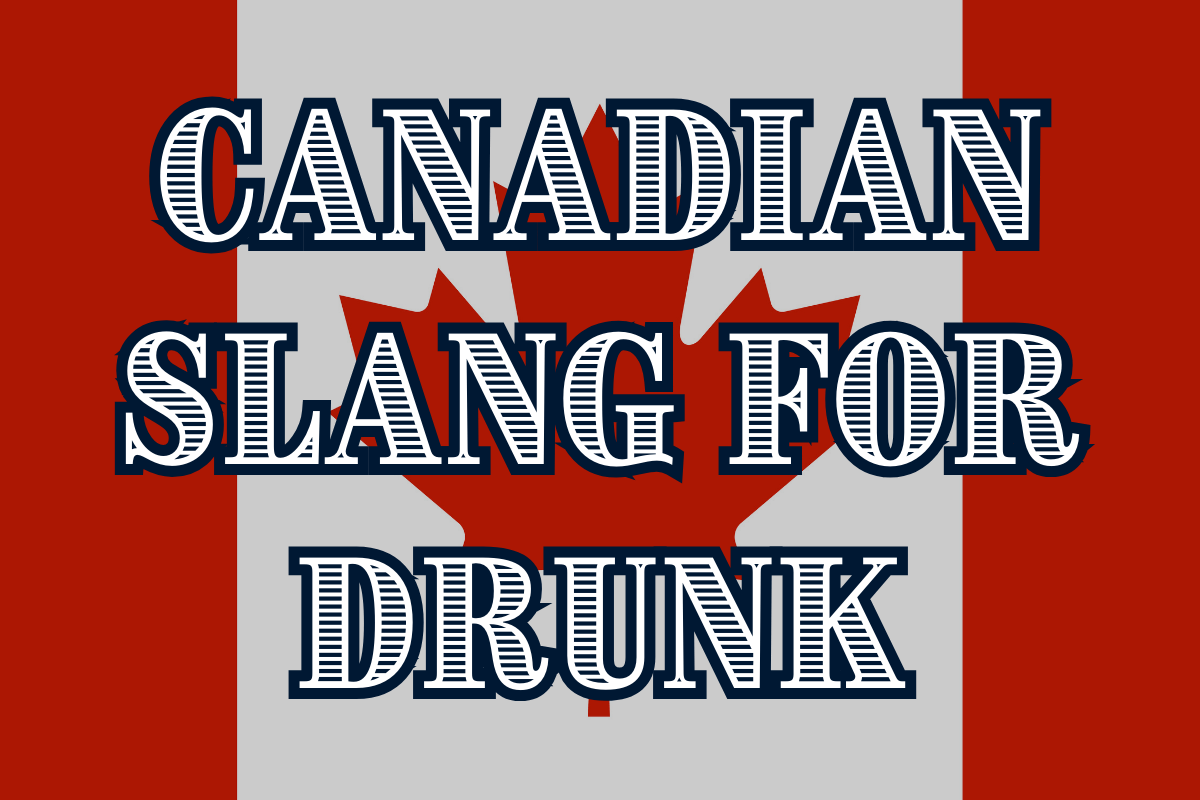
Canadian Slang For Drunk
Adrip
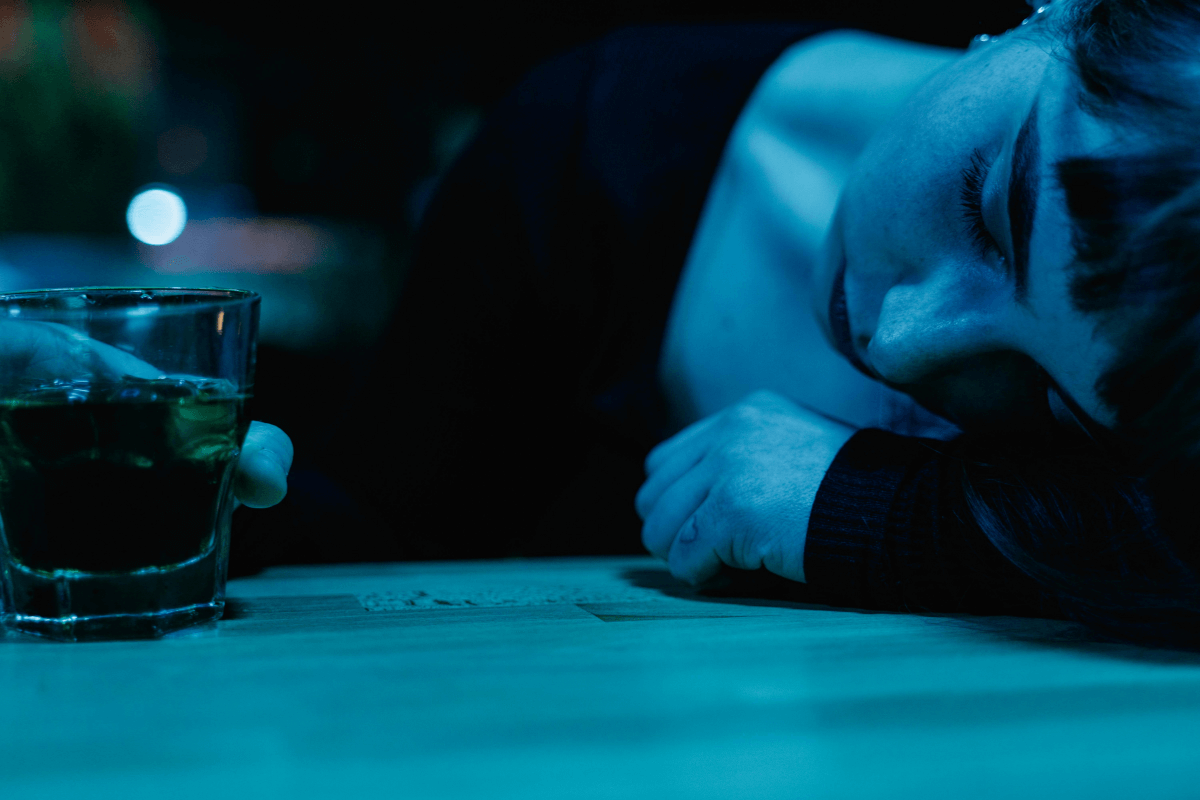
“Adrip” is another term that plays on the idea of being drenched—this time, in alcohol.
Though not widely used in modern Canada, it was once a common way to describe someone who had far too much to drink.
The word itself isn’t standard English, but it conveys the image of someone so intoxicated that they are practically dripping with alcohol.
It was commonly used in 19th-century England before making its way to the U.S. and eventually Canada.
Examples in sentences:
- “He stumbled out of the bar, completely adrip and barely able to walk.”
- “You don’t want to end up adrip like last weekend—take it easy!”
- “By midnight, half the party was adrip and singing terribly off-key.”
- “She was so adrip that she forgot where she had parked her car.”
- “The old sailors used to get adrip on rum after a long day at sea.”
Bottled

“Bottled” is a well-known Canadian slang term for being drunk, usually in a social setting.
Unlike some other terms, it doesn’t always specify the level of drunkenness, it could mean anything from pleasantly tipsy to completely wasted.
It’s often used to describe a night of drinking with friends.
The term has been in use in both Canada and the U.S. since at least the 1970s, likely originating as a reference to drinking directly from bottles.
Examples in sentences:
- “We all got bottled at the cottage last weekend.”
- “He was completely bottled after the hockey game.”
- “Let’s get bottled tonight, it’s been a long week.”
- “They were bottled by midnight and singing loudly.”
- “She got bottled on wine and started telling funny stories.”
Buzzed

“Buzzed” is a widely used term in Canada to describe the initial, light stage of drunkenness, before things get messy.
Unlike most slang terms for being drunk, it doesn’t imply excessive drinking.
Instead, it refers to that happy, energetic feeling you get after a couple of drinks.
The term likely comes from the sensation of feeling like you’re “buzzing” with excitement and warmth.
Though we’re not sure exactly when it first appeared, it’s been around longer than you might expect.
Examples in sentences:
- “I was pretty buzzed after my second beer, but still in control.”
- “Let’s just get a little buzzed tonight, nothing crazy.”
- “She was buzzing after those cocktails, having the time of her life.”
- “I love the feeling of being buzzed, but not too drunk.”
- “He got buzzed way too fast on an empty stomach.”
Clobbered

“Clobbered” is a fantastic slang term that perfectly captures the aftermath of a heavy night of drinking.
Used across Canada, it means someone was absolutely hammered the night before.
While the exact origins are unknown, it likely comes from the idea of being physically beaten or hit, because that’s exactly how you feel the next day!
The term may have originated in Victorian-era English slang before making its way across the Atlantic.
Examples in sentences:
- “I was absolutely clobbered after those tequila shots.”
- “He got so clobbered last night he couldn’t even find his way home.”
- “We’re going to get clobbered at the pub tonight!”
- “She woke up feeling clobbered after all that wine.”
- “You don’t want to get too clobbered before your early shift tomorrow!”
Floored

“Floored” describes the final stage of drunkenness.
When someone is so intoxicated that they can’t stay on their feet and end up on the floor.
It’s a widely recognized slang term in Canada and other English-speaking countries.
While we can’t pinpoint exactly when it became a Canadian term, its usage in this sense appears to have emerged in the late 19th century.
Examples in sentences:
- “He’s going to be floored by 4pm if he doesn’t pace himself.”
- “I was completely floored after those tequila shots.”
- “She got floored at the wedding reception and had to be carried out.”
- “If you mix beer and whiskey, you’ll be floored in no time.”
- “He was so floored he passed out on the couch.”
Hosed
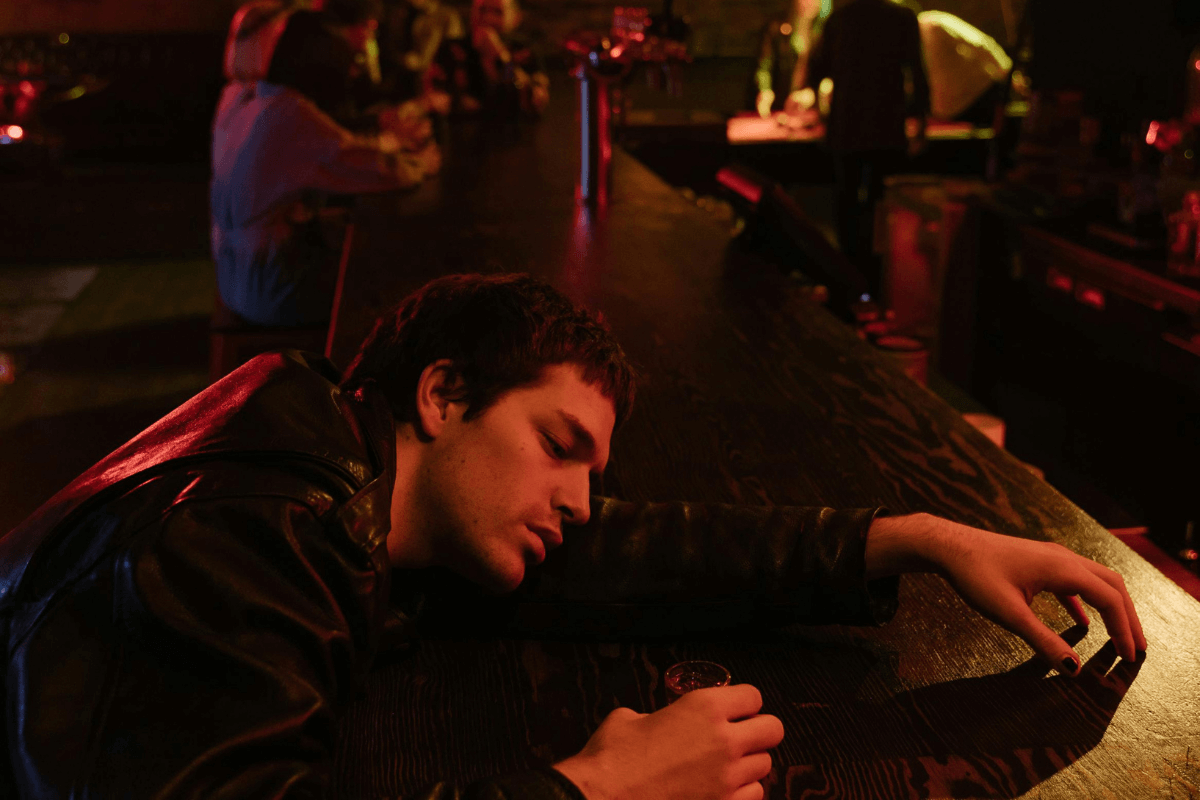
“Hosed” is a widely used slang term in Canada that means being very drunk—sometimes too drunk. If someone says you’re hosed, it might be time to call it a night.
Slang terms for drunkenness often vary in intensity, and “hosed” suggests a fairly high level of intoxication.
While its exact origin is unclear, there are a few theories:
- It may come from ice hockey, where rinks are hosed down after games.
- Another theory ties it to the Great Depression, when gasoline was siphoned from farm vehicles—often while drunk on homemade alcohol.
Whatever its true origin, “hosed” remains a uniquely Canadian way to describe someone who’s had a few too many.
Examples in sentences:
- “I was completely hosed after that party last night.”
- “You’re looking a little hosed, buddy—maybe switch to water.”
- “We got absolutely hosed celebrating the win.”
- “By the time we left the bar, half the group was hosed.”
- “If you don’t slow down, you’re gonna get hosed.”
Hoser
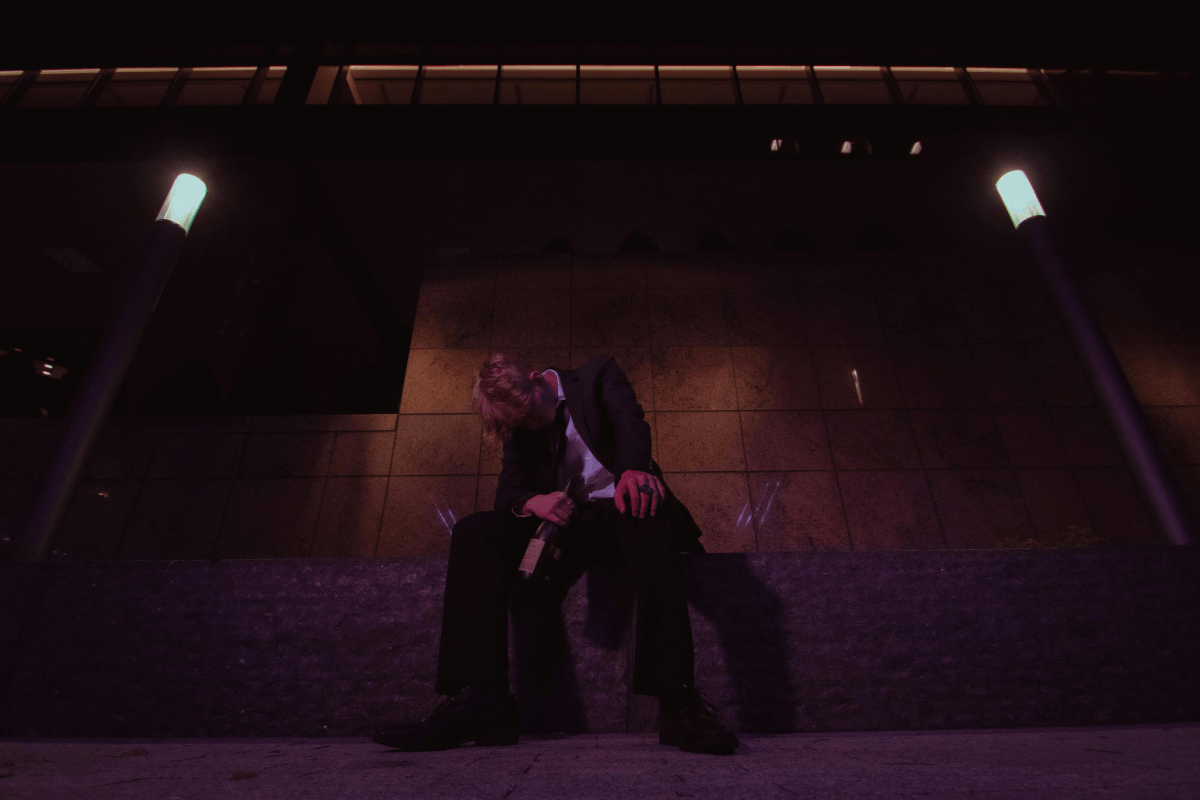
If someone is hosed, they’re very drunk.
If they do it a lot, they’re a hoser.
While the exact origin of hoser is uncertain, it shares the same possible roots as hosed either from ice hockey, where rinks were hosed down after games, or from the Great Depression, when people siphoned gas (often while intoxicated).
The term became especially famous due to the Canadian comedy duo Bob and Doug McKenzie, who used it to mock stereotypical, beer-loving Canadians.
Unlike hosed, which refers to a temporary state, hoser describes a person’s general behavior.
It’s often used in a lighthearted, teasing way rather than as an insult.
Examples in sentences:
- “Don’t be such a hoser—pace yourself!”
- “That guy’s a total hoser; he’s always the first one drunk.”
- “Only a hoser would challenge the bartender to a drinking contest.”
- “Back in college, we were all hosers on the weekends.”
- “You can always count on a few hosers showing up to the hockey game pre-drunk.”
Jaked
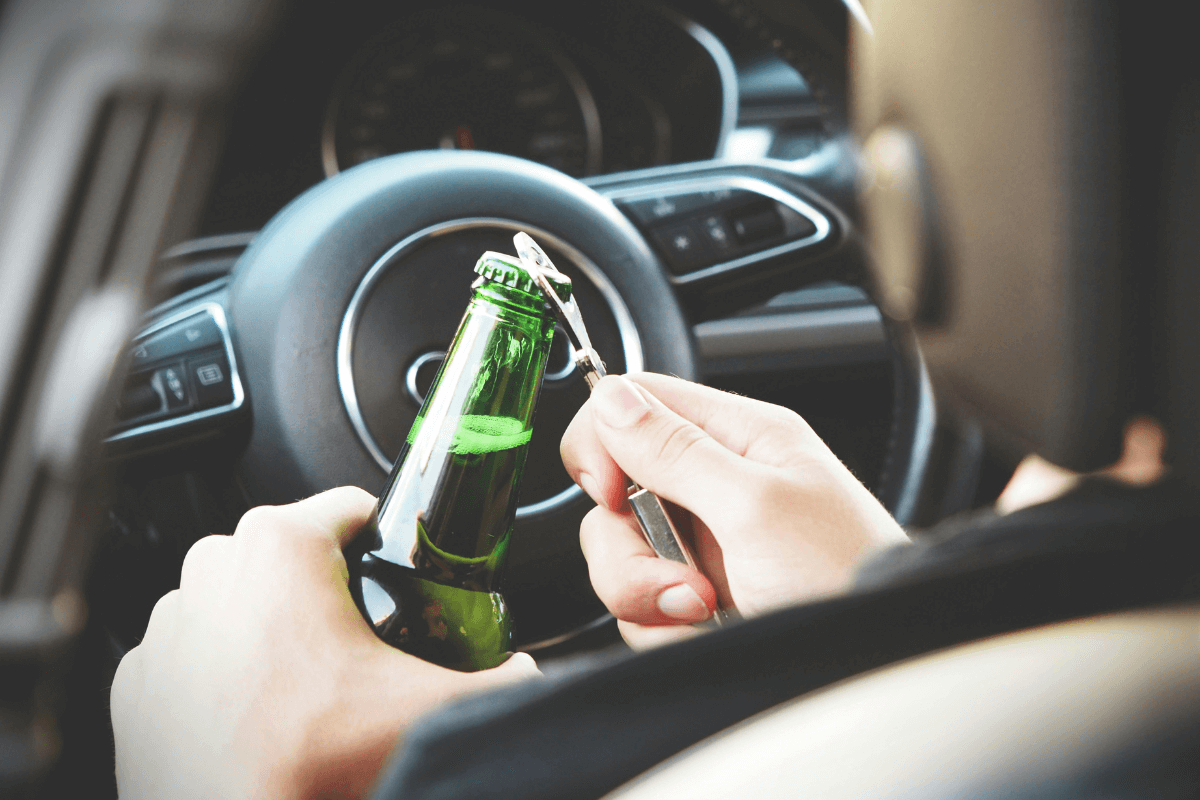
“Jaked” is a common slang term in parts of Canada, used to describe someone who is extremely drunk.
It can also extend to mean someone who is high, making it a broader term for intoxication.
For example, “He can’t drive, he’s jaked.”
The exact origin of the term is unclear, but it may relate to a mid-20th-century North American slang meaning of “satisfactory.”
It doesn’t appear to be much older than the 1930s.
Examples in sentences:
- “He was so jaked last night he could barely walk.”
- “You’re not getting into the club if you’re already jaked.”
- “She got completely jaked at the party and lost her phone.”
- “He always gets jaked after just a few drinks.”
- “The bartender refused to serve him because he was clearly jaked.”
Juiced

“Juiced” is a widely used slang term across Canada, describing someone who is quite drunk but not necessarily at the point of being completely wasted.
It refers to a state above being buzzed but below being out of control.
For example, “I’m starting to feel pretty juiced.”
While its exact origins are unclear, the term fits naturally within the pattern of using words related to liquid—like “sodden” or “juiced”—to describe drunkenness.
Examples in sentences:
- “We got pretty juiced at the hockey game last night.”
- “He’s not wasted, just a little juiced.”
- “After a few rounds, everyone was starting to feel juiced.”
- “I don’t want to get too juiced, I have work in the morning.”
- “She was juiced enough to start singing karaoke.”
Larruped

The term “larruped” may sound odd, but it’s used in Canada to describe someone who is very drunk.
It derives from the word “larrup,” which is traditionally meant to beat or thrash something, especially with a whip.
In this context, being “larruped” refers to the sensation of being so drunk that the next day you feel as though you’ve been thrashed in the head.
While the origin of the term is uncertain, it’s believed to have come from the Dutch word “larpen,” meaning to thresh with flails, though the connection to drunkenness is more figurative.
Examples in sentences:
- “He gets larruped off those shots every time.”
- “After that night, I was so larruped I couldn’t remember anything.”
- “She was completely larruped by the end of the party.”
- “I tried to keep it together, but I ended up getting larruped.”
- “They got larruped at the bar and stumbled home.”
Lit

“Lit” is one of those slang terms that might seem modern, but it dates back over a century.
In Canadian slang, it means being drunk, usually in a fun, party-like setting.
The term has been widely used in both Canada and the U.S. since at least the 1910s when it originally referred to someone who was mildly intoxicated.
It likely comes from the idea that alcohol makes people “light up” with energy and excitement, though the exact origin is unclear.
Examples in sentences:
- “That party last night was crazy—we all got totally lit!”
- “I’m not wasted, just a little lit from those cocktails.”
- “He was so lit he started dancing on the tables.”
- “We’re getting lit tonight, so make sure you’re ready!”
- “She was already lit before we even left for the club.”
Oiled

“Oiled” is a Canadian slang term used to describe someone very drunk.
The idea behind it is simple—when someone is “oiled,” they are compared to a well-oiled machine, where alcohol acts as the lubrication for their body.
Just like how machines need oil to function smoothly, alcohol seems to loosen up the person, making them feel relaxed or uninhibited.
This term dates back to the 19th Century during the Industrial Revolution, and while it’s still used in Canada, it’s not the most common slang for being drunk.
It’s more of a fun, quirky way to describe someone who’s had a few too many drinks.
Examples in sentences:
- “They’re all pretty well oiled by now.”
- “We got oiled at the bar last night and danced till closing time.”
- “By the end of the night, he was completely oiled and couldn’t stand straight.”
- “They were oiled up after just a few rounds.”
- “I was feeling oiled after that party, but it was a blast!”
Ossified
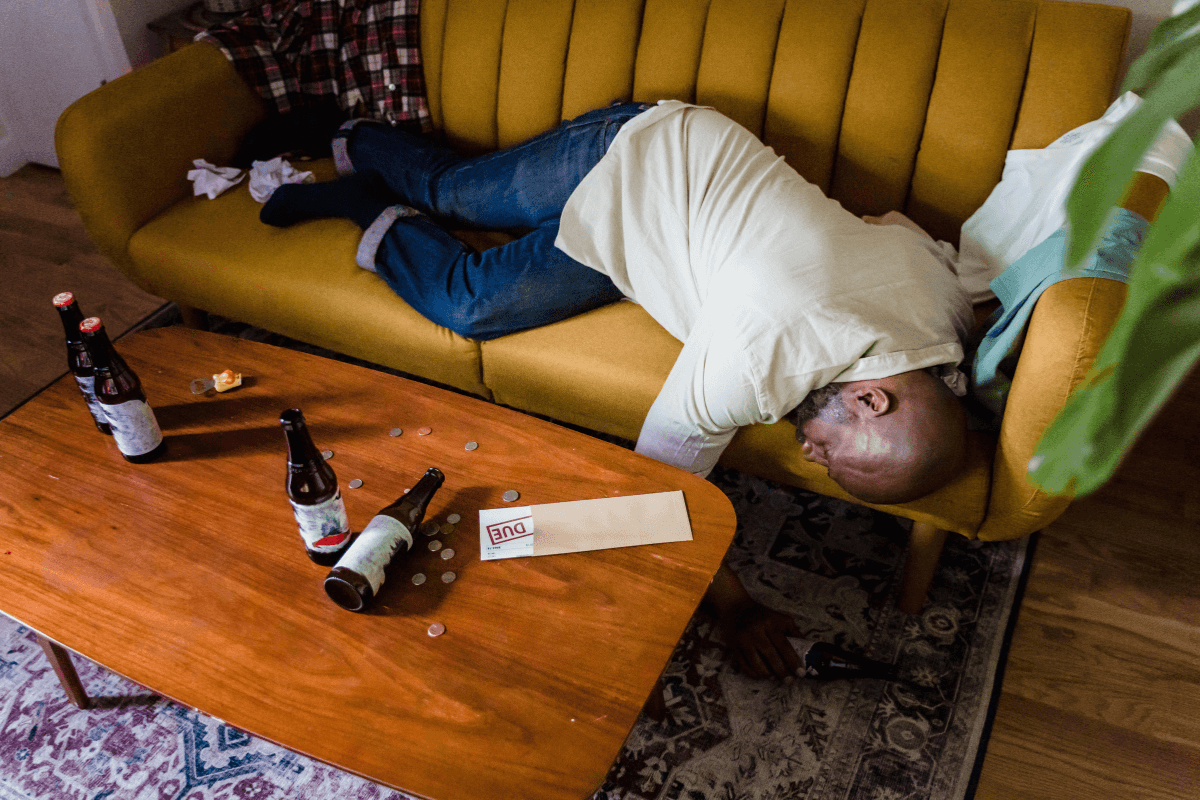
“Ossified” is a term used in both Canada and the U.S. to describe someone who is very drunk, often at the highest level of inebriation.
It originally came from Irish slang and is still popular in Canada today.
The literal meaning of “ossified” refers to the process of turning cartilage into bone, though how it came to mean “drunk” is unclear.
The term was likely brought to Canada by Irish immigrants in the 19th and 20th centuries.
Examples in sentences:
- “He was absolutely ossified by the time we left the bar.”
- “You don’t want to get too ossified before the wedding starts!”
- “After a few too many drinks, she was completely ossified.”
- “I was so ossified last night, I don’t even remember getting home.”
- “By the end of the night, half the party was totally ossified.”
Pickled
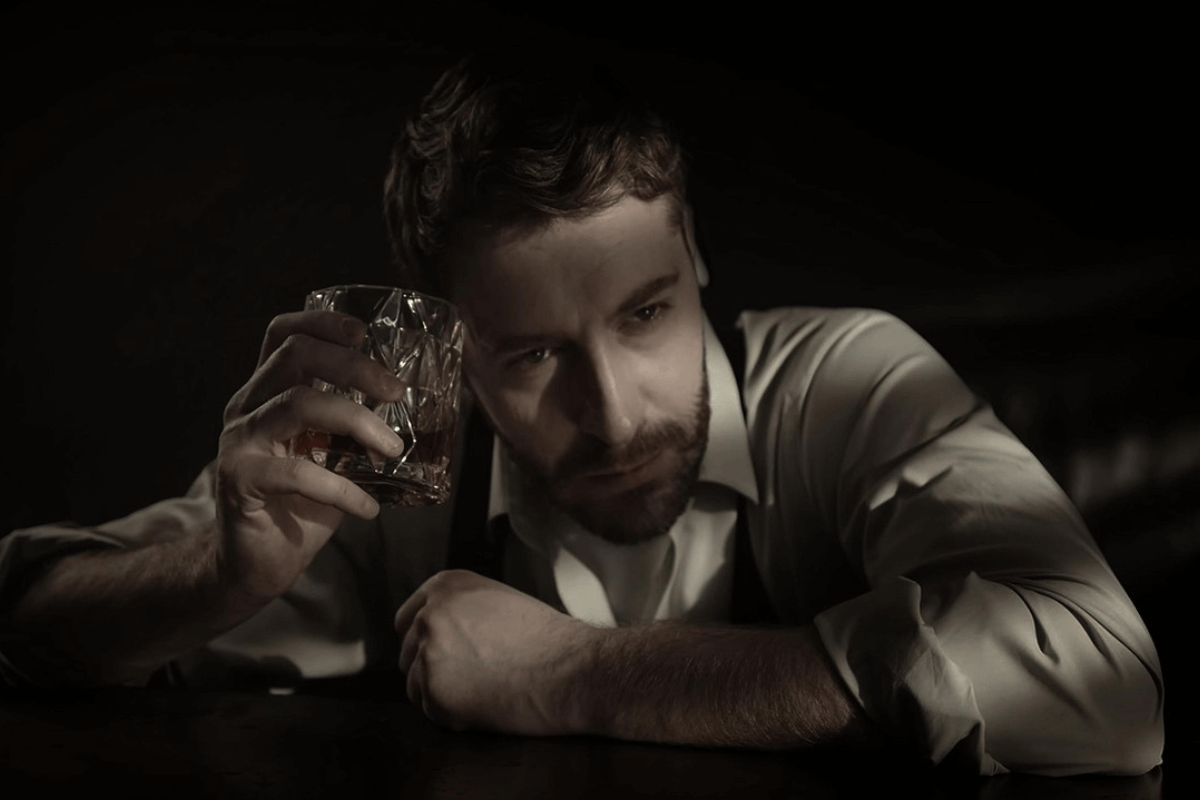
To be pickled means to be extremely drunk, often to the point of being noticeably altered. It’s a widely used term in Canada and has been around for over a century.
The term comes from the idea of pickling food, to preserve something in liquid.
In the same way, someone who gets very drunk is “soaked” in alcohol, almost as if they’ve gone through a transformation.
While it was once common in the U.S. as well, it’s now more frequently used in Canada.
Examples in sentences:
- “He got absolutely pickled at the party last night.”
- “You were so pickled, I had to call you a cab.”
- “I can’t believe she’s out again tonight—she was pickled just last night!”
- “We all got pickled celebrating the big win.”
- “No more shots for me—I don’t want to end up pickled.”
Plowed
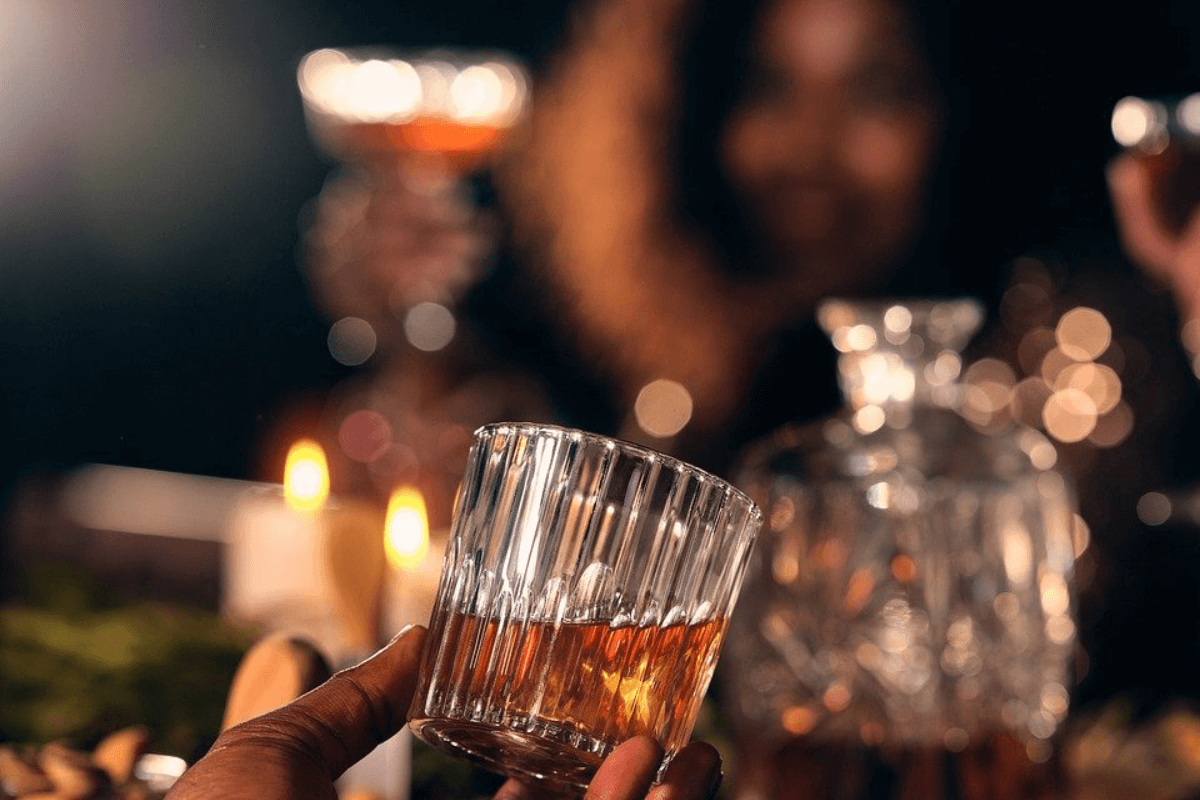
In Canada, “plowed” is a common way to say someone is very drunk.
The term likely draws from the imagery of plowing through the snow, something deeply familiar in the northern climate, suggesting that someone who is plowed is completely altered by alcohol.
Though originally from the U.S., the term became more widely used in Canada over time.
It’s often used in casual conversations to describe a night of heavy drinking.
Examples in sentences:
- “We went out and got plowed last night.”
- “If you keep drinking like that, you’re going to be plowed by midnight.”
- “I was so plowed, I don’t even remember getting home.”
- “They were absolutely plowed after finishing that bottle of whisky.”
- “I can’t believe I have to work today—I was totally plowed last night.”
Sauced

“Sauced” is a Canadian slang term for being drunk, often used to describe someone who is heavily intoxicated.
However, it can also refer to the early stages of drunkenness, when someone is just starting to feel the effects of alcohol.
The word originates from the older term “soused,” which means soaked in liquid.
Over time, it evolved into “sauced,” likely influenced by the word “sauce,” reinforcing the connection to alcohol.
Examples in sentences:
- “After a few shots, he was completely sauced.”
- “We got a little sauced at the party, but nothing too crazy.”
- “By midnight, she was so sauced she could barely walk.”
- “He’s already getting sauced, and it’s only 7 PM.”
- “I don’t want to get too sauced tonight—I have work in the morning!”
Screwed
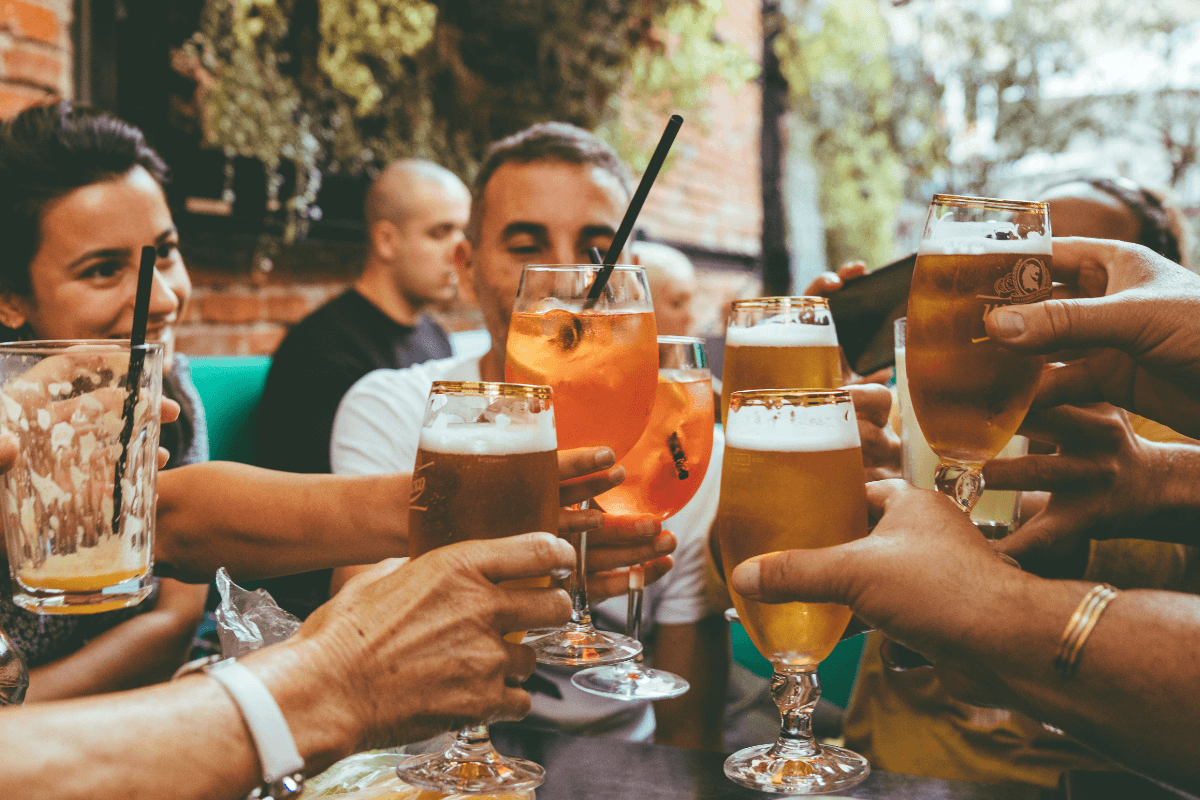
“Screwed” is used in Canada to describe someone who is extremely drunk.
It’s a term that emphasizes how alcohol can mess with your behavior or state of mind.
You might say, “I was completely screwed this weekend,” to convey that you were thoroughly intoxicated.
The origin of the term comes from Britain in the 1800s, where “screwy” was used to describe the erratic behavior of drunken people.
Over time, this slang term made its way to Canada, where it evolved into “screwed” and is still used today to refer to severe drunkenness.
Examples in sentences:
- “I was completely screwed this weekend after that party.”
- “By the end of the night, we were all pretty much screwed.”
- “He drank so much, he ended up totally screwed and had to be carried home.”
- “I can’t remember much of last night—I was totally screwed.”
- “You could tell he was screwed the moment he walked in.”
Shellacked
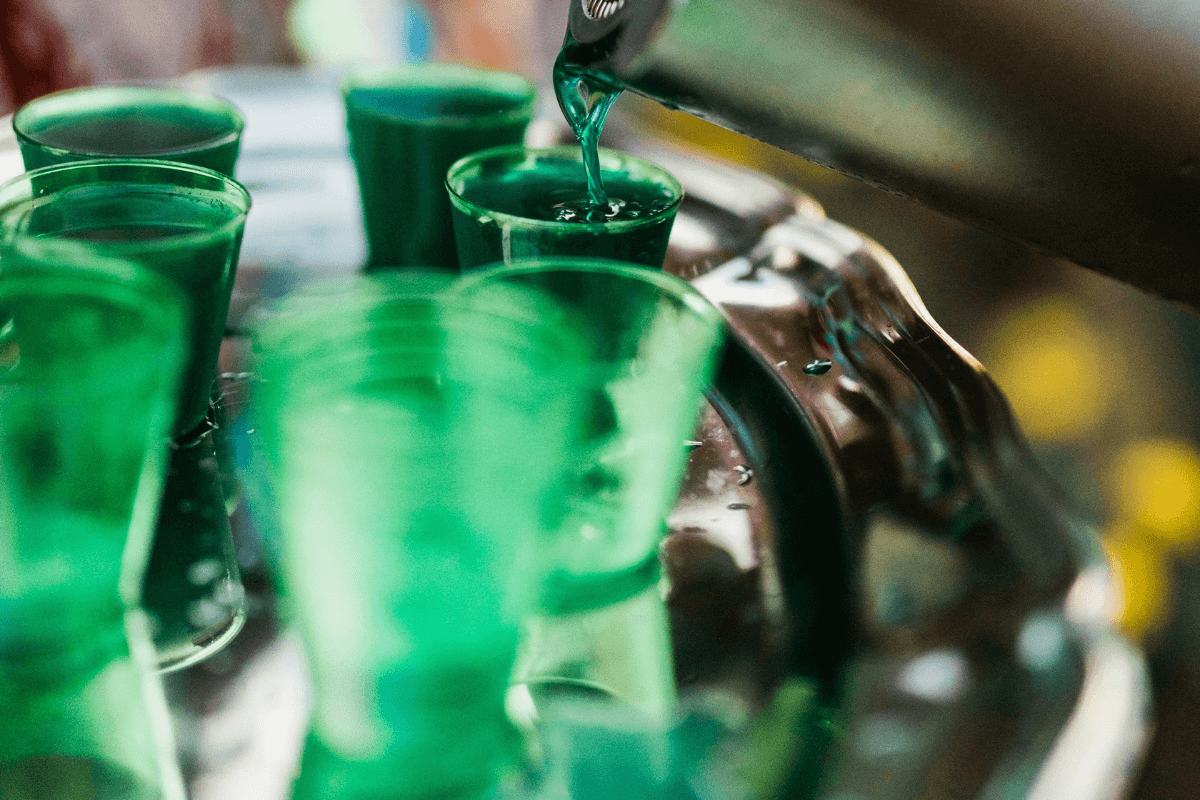
“Shellacked” is one of the more unusual slang terms for being very drunk in Canada.
Though its standard meaning refers to hair that’s coated with hairspray, in Canadian slang, it means that someone is extremely intoxicated.
The term originates from shellac, a resin with a strong, distinctive smell that is used in wood finishes and as an insulator.
In the 1920s, the term was used to describe the feeling of being drunk on something as potent as the smell of shellac.
Today, it’s still widely used across Canada to describe someone who’s had far too much to drink.
Examples in sentences:
- “After a few too many shots, he was totally shellacked.”
- “We were all shellacked by the end of the party.”
- “She had one too many drinks and was completely shellacked.”
- “I don’t want to get shellacked tonight, just a little buzzed.”
- “He showed up to work shellacked after last night’s celebration.”
Slopped

In Canada, “slopped” is a common slang term for being drunk, particularly in a way that makes someone appear unkempt or out of control.
It follows the same logic as the word “sloppy,” which is widely used in English to describe a lack of coordination or tidiness.
The term has been in use in Canada for at least a century, with written records dating back to the mid-20th century.
Examples in sentences:
- “After a few too many beers, he was completely slopped.”
- “You were so slopped last night, you could barely walk straight.”
- “I told myself I wouldn’t get slopped, but here we are.”
- “She got absolutely slopped at the party and lost her phone.”
- “Let’s pace ourselves so we don’t end up slopped by midnight.”
Snockered

“Snockered” is a fun, made-up word used to describe someone who’s had one too many drinks.
It’s popular in Canada, but it may be falling out of fashion in recent years.
The term might be related to “snookered,” which also refers to being drunk and comes from the game of snooker.
While its precise origins are unclear, “snockered” has stuck around because it’s just a fun word to say when you’re describing a bit of drunkenness!
Examples in sentences:
- “By the end of the night, he was completely snockered and couldn’t even remember how he got home.”
- “I think I’ve had enough, I don’t want to get snockered like last time.”
- “They were all snockered by the time the party was over.”
- “Don’t get snockered too early, we still have a long night ahead!”
- “He’s always the first to get snockered at every party.”
Sodden
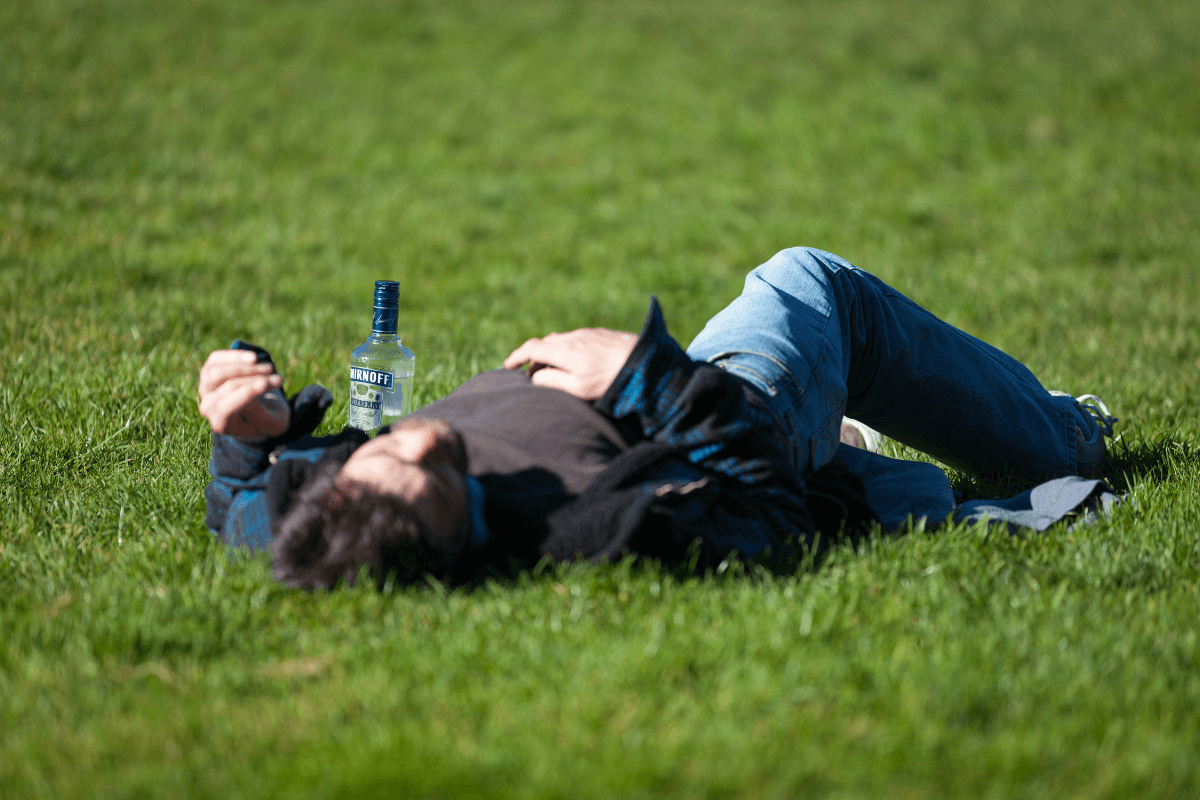
“Sodden” is a Canadian slang term used to describe someone who is completely, almost dangerously drunk.
It implies being so intoxicated that one is barely functional, often with a sense of being mentally dulled by alcohol.
The term originates from its literal meaning—soaked through with liquid—which serves as a metaphor for being “soaked” in alcohol.
It has been used in both Canada and the U.S. for a long time, possibly as far back as the mid-19th century.
Examples in sentences:
- “By the end of the night, he was absolutely sodden.”
- “She showed up already sodden, and it just got worse from there.”
- “I don’t remember much—I was too sodden to think straight.”
- “He was so sodden he fell asleep at the bar.”
- “You’re not driving home in that state, you’re completely sodden!”
Sotted

“Sotted” is a term commonly used in Canada to describe someone very drunk, though it can also be used to refer to someone who drinks heavily and frequently.
The term originates in medieval Latin, where “sottus” meant a foolish person.
This evolved into the Old English word “sott,” which referred to a habitual drinker.
By the mid-20th century, “sotted” was used more commonly in Canadian slang to describe someone who was simply very drunk, regardless of their drinking habits.
Examples in sentences:
- “He got sotted after just a few beers at the pub.”
- “Don’t get too sotted at the party tonight.”
- “She was completely sotted by the end of the evening.”
- “After a long week, he was sotted every Friday night.”
- “They tried to keep him from getting sotted, but it was no use.”
Sottish

“Sottish” is another term related to being drunk, closely tied to the word “sotted.”
While it can imply someone who drinks heavily and habitually, it is more commonly used to simply describe a person who is drunk.
Historically, it also had the meaning of someone acting foolish or stupid as a result of their drunkenness.
The term carries with it the idea that excessive drinking leads to both inebriation and poor judgment.
Examples in sentences:
- “He was feeling a bit sottish by the time they left the bar.”
- “Don’t get too sottish tonight, remember you have to drive.”
- “She wasn’t just drunk, she was acting downright sottish by the end of the evening.”
- “They had to stop him from getting any more sottish; he’d already had too much.”
- “After a few too many drinks, he became a bit sottish and said some things he didn’t mean.”
Souped-up
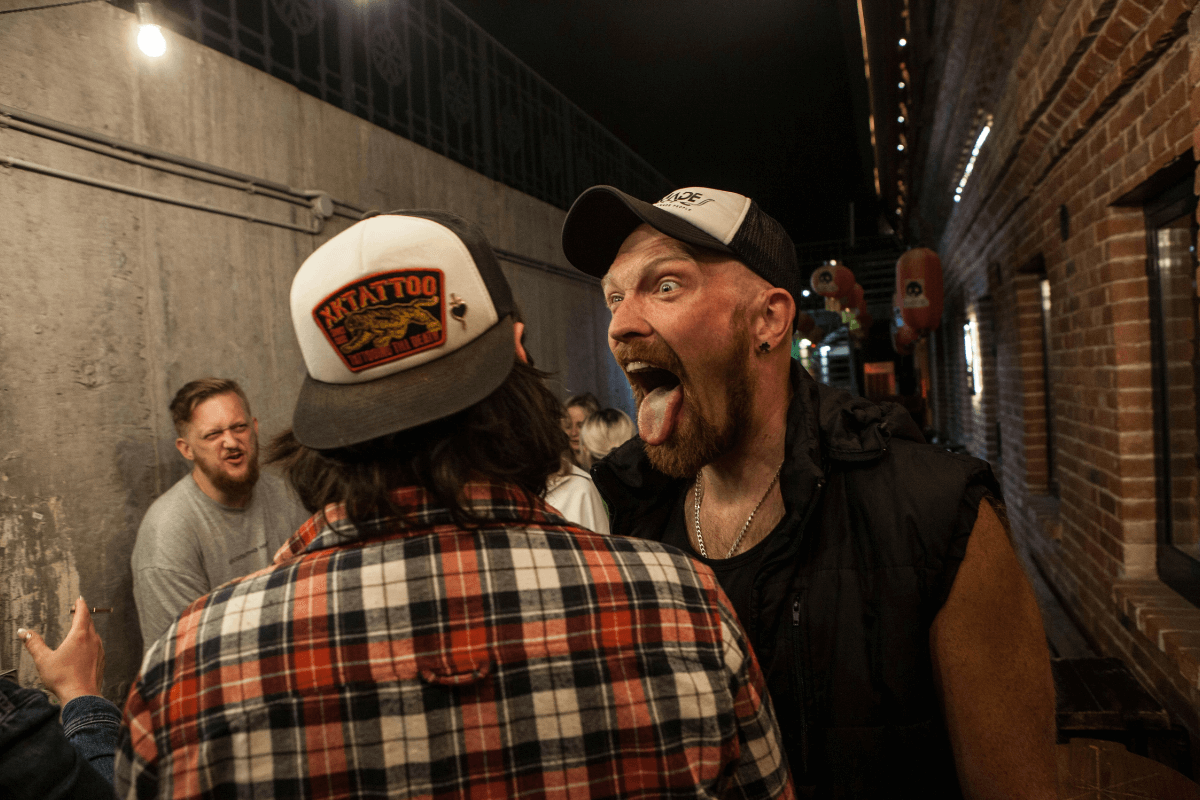
“Souped-up” is a term familiar in many parts of the world, especially when referring to enhanced performance, like with cars.
However, in Canadian and U.S. slang, it takes on a different meaning—being drunk.
The term is thought to have originated in U.S. naval slang, possibly referencing the practice of adding alcohol to soups and broths.
While its exact origins in Canadian slang are unclear, it appears to have become widely used in the 20th century.
Examples in sentences:
- “By the end of the night, he was completely souped-up and couldn’t remember anything.”
- “Don’t go getting souped-up before the meeting!”
- “We were all feeling pretty souped-up after the celebration.”
- “You could tell he was souped-up just by the way he was stumbling.”
- “They had a few drinks, but didn’t get too souped-up to drive home.”
Soused

“Soused” is a Canadian slang term that refers to being very drunk, to the point where someone is completely soaked in alcohol, beyond any reasonable recovery.
The word itself has a literal meaning of soaking something in liquid, but its slang usage implies an extreme level of drunkenness.
While the term is quite old, dating back to the 19th Century or possibly earlier, it is less commonly used today outside of some specific trades or older generations.
Examples in sentences:
- “After the wedding reception, he was completely soused and had to be helped home.”
- “She was so soused last night, I don’t think she remembers anything from the party.”
- “Don’t get soused tonight, we have an early meeting tomorrow.”
- “They were all pretty soused by the time the bar closed.”
- “You could tell he was soused the minute he walked in—his speech was all slurred.”
Trashed
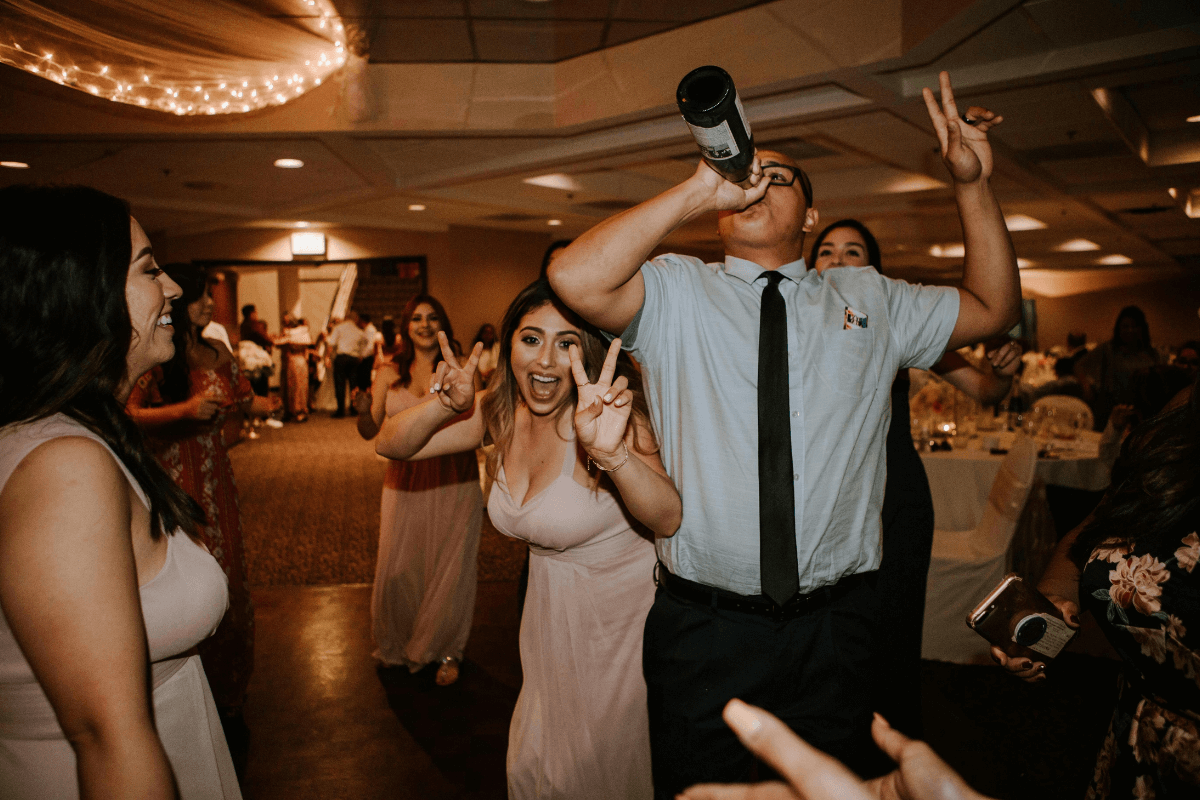
“Trashed” is one of the most popular slang terms in Canada for being very drunk.
It’s widely understood and commonly used across the country.
For example, “I want to get pretty trashed tonight” would be a typical use of this phrase.
The term originated in the U.S. in the 1920s, likely arising during Prohibition when people would get drunk in secret.
It spread quickly to Canada, where it became a staple part of the slang vocabulary for describing someone who is heavily intoxicated.
Examples in sentences:
- “We got trashed last night at the bar!”
- “He’s definitely trashed if he’s talking like that.”
- “After a few more drinks, she was completely trashed.”
- “We had such a good time, but we were all pretty trashed by the end.”
- “I’m planning to get trashed at the party tonight.”
Wasted
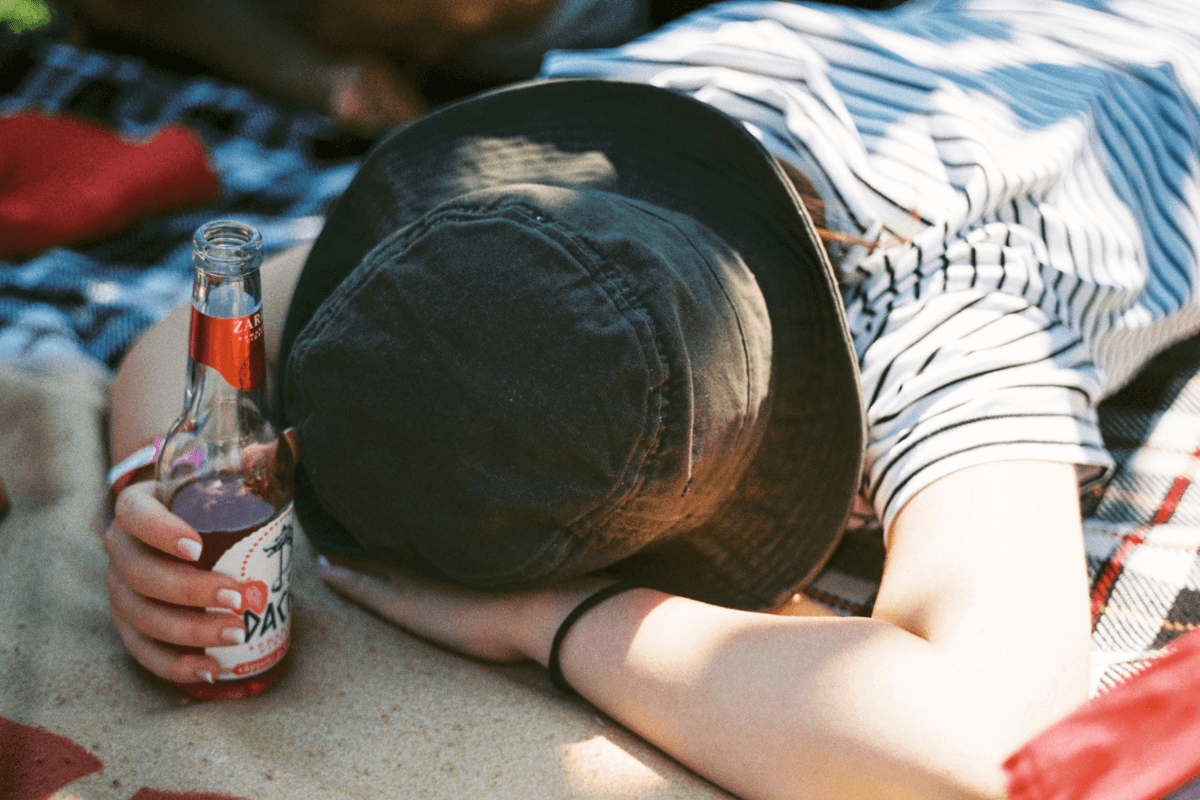
“Wasted” is one of the most universally recognized slang terms for being drunk, and it typically refers to the highest level of intoxication.
The term has been used in North America for decades, particularly in the U.S. and Canada.
The sense of being “wasted” comes from the idea that drinking so much alcohol leads to wasting one’s body or inhibiting one’s ability to function.
“Wasted” solidified its meaning in the 1950s, and its popularity exploded in the 1960s, especially among hippies.
Examples in sentences:
- “He was so wasted last night that he didn’t even remember getting home.”
- “She passed out cold after getting totally wasted at the party.”
- “We’re not going out tonight, I don’t want to get wasted again.”
- “By the end of the evening, they were all completely wasted and ready to crash.”
- “He was too wasted to even walk to the car after the concert.”
Wrecked

“Wrecked” is a popular term used to describe someone who is severely intoxicated, often implying that their state is so bad that it’s akin to being destroyed or “wrecked.”
The term became widely used in Canada and other parts of the English-speaking world, particularly in the 1990s, though it has gained even more traction in recent years due to internet and meme culture.
When someone is “wrecked,” they are generally beyond the point of functioning and might need assistance, such as a cab ride home.
Examples in sentences:
- “He was totally wrecked after that last round of shots.”
- “Don’t let her drive, she’s wrecked!”
- “After the party, they were all wrecked and passed out on the couch.”
- “I’m going to be wrecked tomorrow if I keep drinking like this.”
- “We’re going out tonight, but I don’t want to end up wrecked again.”
Canadian slang is a rich and varied one, then, like most slang, is not short on ways to say people are drunk.
For better or worse, drunkenness and drinking culture seem as though they are going to be around for some time.
We are going to have to live with it for the time being, so there are probably always going to be more and more terms describing drunkenness for new generations.
More in Canadian Slang
- 10 Canadian Slang Terms For Beer To Sound Like A Local
- Canadian Slang For Cigarettes (Explained!)
- 28 Quirky Canadian Ways To Say You’re Drunk
- Canadian Slang For Friend (Helpful Content)
- Canadian Slang For Hello (Explained!)
- 10 Canadian Slang Terms For Hot Girls You Need To Know
- Canadian Slang For Money (Explained!)
- Canadian Slang For No (Helpful Content)
- Canadian Slang For Snowmobile (Helpful Content)
- Canadian Slang For Yes (Explained!)

